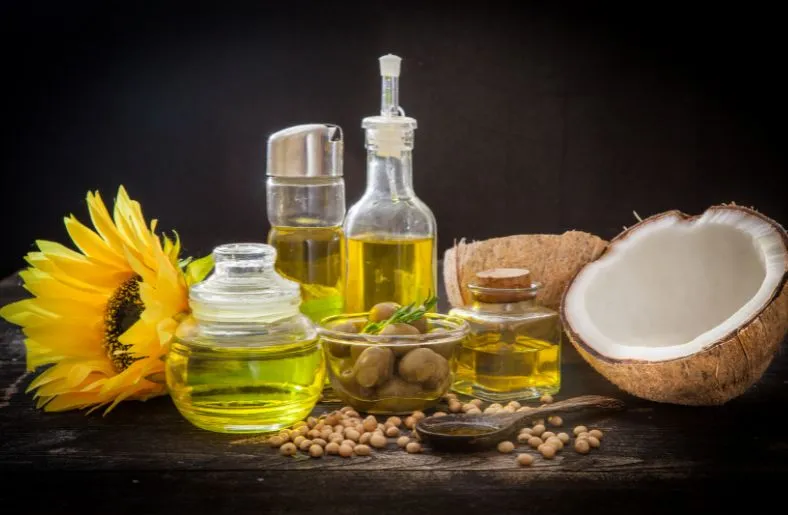Machine lubrication is essential for the smooth operation of various mechanical devices and equipment. While traditional lubricants are widely used, there’s a growing curiosity about whether everyday cooking oils can serve as a viable alternative.
In this comprehensive guide, we’ll explore the question: “Can I use cooking oil as machine lubricant?”
Table of Contents
What are Cooking Oils?
Cooking oils, such as vegetable oil, canola oil, and others, are primarily known for their culinary applications. These oils are plant-based and often chosen for their high smoke points, making them ideal for frying and sautéing. However, their properties extend beyond the kitchen, raising questions about their potential use in machinery lubrication.
Can I Use Cooking Oil as Machine Lubricant?
1. Feasibility of Using Cooking Oil as Machine Lubricant
- Lubrication Properties: Cooking oils possess inherent lubricating properties, which can help reduce friction, prevent wear and tear, and contribute to the proper functioning of machinery.
- Biodegradability: One of the key advantages of cooking oils is their biodegradability. They naturally break down over time, making them an environmentally friendly option compared to some petroleum-based lubricants.
- Low Toxicity: Most cooking oils have low toxicity levels, making them a safer choice in situations where accidental contact with humans or the environment may occur.
Related Guide: Canola Oil as Lubricant: Benefits, Uses, and Considerations (2023-2024)
2. Benefits of Using Cooking Oil as Lubricant
- Cost-Effectiveness: Cooking oils are often more budget-friendly than traditional lubricants, potentially resulting in cost savings for both individuals and businesses.
- Reduced Environmental Impact: The biodegradable nature of cooking oils contributes to a lower environmental footprint. They have a reduced impact on ecosystems compared to non-biodegradable lubricants.
- Versatility: Cooking oils are readily available and can be used in various applications, offering versatility for those seeking alternative lubricant options.
3. Drawbacks and Considerations
- Viscosity: Cooking oils may not have the ideal viscosity for all types of machinery, potentially leading to insufficient lubrication.
- Temperature Sensitivity: Cooking oils can be sensitive to temperature fluctuations, thickening in cold conditions and thinning out in high-temperature environments, which can affect their lubrication properties.
- Compatibility: Compatibility issues may arise when mixing cooking oil with existing lubricants. It’s crucial to consult machinery manufacturers or lubrication specialists to ensure compatibility.
- Oxidation: Cooking oils are susceptible to oxidation, which can lead to rancidity and reduced lubrication effectiveness over time.
4. Practical Applications of Cooking Oil as Lubricant
Cooking oil can find practical applications as a lubricant in various scenarios, including:
- Home and Hobby Machines: In non-critical applications, such as home tools or hobby machinery, cooking oil can serve as a temporary lubricant.
- Agricultural Equipment: Some farmers have experimented with using cooking oil on certain agricultural machinery, especially in remote or environmentally sensitive areas.
5. Risks and Precautions
Before considering the question of whether can i use cooking oil as machine lubricant, it’s crucial to acknowledge potential risks and take necessary precautions:
- Regular Monitoring: Machinery using cooking oil as a lubricant should be closely monitored for performance, wear, and the condition of the oil. Frequent inspections can help prevent unexpected breakdowns.
- Compatibility Testing: Ensure compatibility with existing lubricants and machinery materials to avoid potential issues or damage.
- Temperature Control: Consider the temperature conditions of your operating environment, as extreme temperatures can impact the effectiveness of cooking oil as a lubricant.
- Oil Change Intervals: Establish regular oil change intervals to prevent the buildup of oxidation products and maintain lubrication quality.
FAQs
1. Can I use cooking oil as machine lubricant?
Today, vegetable oils are being considered for their suitability as industrial lubricants. One of the main problems of vegetable oils is their poor performance when working at high temperatures and pressure. They may oxidize and change their chemical and physical composition.
2. Which oil is best for the lubrication of the machine?
Servoline oils are recommended for all types of industrial machinery using once-through lubrication systems. Also recommended for use in the lubrication systems of machine tools, textile machinery, and other machine parts that are lubricated by a thin film of oil.
3. What are the disadvantages of vegetable oil as a lubricant?
Poor oxidative and hydrolytic stability, high cost, food versus energy debate, high-temperature sensitivity of tribological behavior, and poor cold flow properties are reckoned to be the limitations of vegetable oils for their use as base oils for industrial lubricants.
4. Does cooking oil damage metal?
In the worst cases, the oxygen bond in vegetable oils can lead to metal oxidation and weaken the structure of the metal.
Conclusion
“Can I use cooking oil as machine lubricant” is a topic that intrigues many due to its potential cost savings and environmental benefits. While it is feasible for certain applications, it’s essential to carefully weigh the pros and cons, considering factors like viscosity, temperature sensitivity, compatibility, and oxidation.
While it may not be a universal solution, cooking oil can serve as a viable alternative in specific circumstances, contributing to both cost-efficiency and environmental responsibility.

